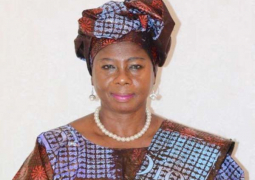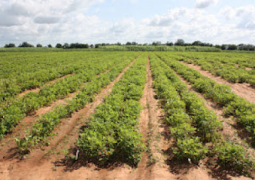Over the past few days, there have been complaints of meat scarcity in town. This paper interviewed some butchers and market vendors to reach at the bottom of the matter.
The first point of call for these reporters was Abuko, where they spoke to one Alhagie Jallow, a butcher, who claimed to have been in the trade for many years.
Sharing his thoughts on what might be responsible for the reported meat shortage, Mr. Jallow, said butchers are not involved in any protest action.
He said they are not selling meat simply because they cannot afford to buy the cattle available in Abuko, the cost of which means they have been selling meat at a loss.
According to Mr. Jallow, most of the bulls slaughtered in the country are imported from neighbouring countries, such as Senegal, Mali, Mauritania and Guinea.
He said cattle traders do business in CFA francs, which make the price of cattle expensive for the butchers.
"It's getting to five days now; we have not done serious business, since we cannot buy the bulls in the market. If we have cattle at a good price, which we are able to slaughter and to sell the meat without making losses, we would surely buy them.
"As you can see, this is not even good for our business, and we are appealing to the Livestock Marketing Agency to do something about this situation.
"They should either bring cattle for us to buy from them at a reasonable cost or allow us to sell at a price which ensures we would not lose," he said.
After the interview, these reporters went round asking about the price of a bull, and found that prices range from 7, 000 and 35, 000 Dalasi for a single bull.
"I told you I have paid D34, 000 for a bull here, but the owner said the offer is too small. So, you can see for yourself our dilemma," Mr. Jallow told these reporters.
Meanwhile, at Abuko, these reporters were shown a public notice issued by the Gambia Livestock Marketing Agency concerning the meat palaver.
In the notice, the agency stated that it has come to their attention that "some unscrupulous butchers are selling meat at D120 per kilo and D80 for bone and meat, far above the official price," and then urged them to desist from such.
The agency urged butchers to comply with the official selling price of D80 and D60, respectively, pending the introduction of the weighing of animals to help determine prices in the livestock sub-sector.
However, the butchers who spoke to this paper denied selling meat over the official prices.
These reporters then spoke to Bakau market butchers, who also complained of the high cost of cattle sold by local dealers.
According to one of them, who did not want to be named, they managed to kill only two animals yesterday, and are not sure if they would kill an animal for sale of meat today. "In fact, on Sunday we could not kill in this market," he lamented.
He went on to explain that, on two instances in the past, they incurred losses of D500 and D850, based on what must be paid to the cattle owners.
This butcher appealed to the government to speed up fixing the weighing scales at Abuko, so as to determine the official selling price for cattle in the country.
Meanwhile, housewives encountered at Serrekunda market have also been complaining about the scarcity of meat when interviewed by these reporters.
Tijan Colley, a butcher for several years at Serrkunda market, said now he cannot afford to buy a bull for his business, due to high price of bulls.
He said he is now killing rams as a substitute for bulls, and that he sells mutton instead of beef. The price for mutton at his canteen is D100 per kilo, he announced.
Mr. Colley revealed that the price for a bull at Abuko which weights 200 kilos, is selling for D21, 000, and a 300 kilo bull for D32, 000.
"Price of bull is too high," and to be selling meat now will always mean losses to him, according to Colley. He added that the D80.00 and D60.00 official prices for steak, and for meat and bone, respectively is something that he will maintain for the sake of humanity.
Another butcher in the same market, Mallal Sowe, said he sells beef at the stipulated official prices, but is facing the same problem.
However, Colley said that presently he has problems with his business, because the majority of his customers do not like mutton.
Tamsir Gaye, another butcher at Serrekunda Market, said he has been in the business for six years now, and is facing the same challenges as others.
While the butchers are complaining, the local authorities are adamant about maintaining the official prices set for butchers.
These reporters learned from Mr. Gaye the market manager at Serrekunda market has kept warning them that any butcher who sells above D80 and D60 will face the full force of the law.



